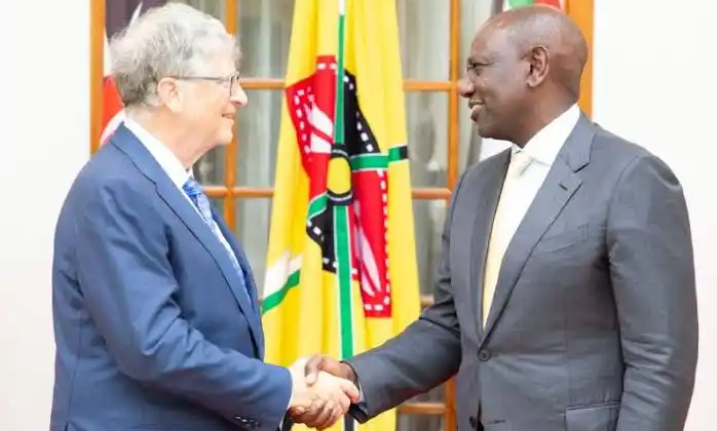Bill Gates, a well-known billionaire and philanthropist, has been at the center of numerous debates surrounding the influence of his foundation on global agricultural practices.
According to the report obtained by Leaked.co.ke, concerns have arisen in Kenya regarding the introduction of Genetically Modified Organisms (GMOs) and the potential impact on local farming communities.
Some people are worried that Gates, through his influence on global policies, is pushing Kenya into adopting GMO practices that could benefit multinational corporations at the expense of small-scale farmers.
One of the critical issues is the perceived imposition of stringent regulations that could force farmers to register their livestock, such as cows, goats, and chickens, under the guise of modernizing agriculture.
Critics argue that such regulations are designed to benefit corporations like those supported by Gates’ initiatives, who could then control the supply of GMO feeds.
This situation could lead to small-scale farmers becoming dependent on expensive GMO feeds, pushing them into a cycle of debt and dependency.
The Kenyan parliament’s role in this situation is also under scrutiny.
There is growing frustration that lawmakers may be endorsing policies without fully understanding their implications, possibly influenced by external pressures from organizations like the International Monetary Fund (IMF) and powerful figures like Gates.
These policies could lead to severe consequences for the agricultural sector, particularly if farmers are penalized for not complying with the new regulations, such as being fined or jailed for feeding their livestock with non-GMO fodder.
The broader context of this debate includes the lifting of Kenya’s 10-year ban on GMOs, a move that has sparked significant controversy.
Proponents argue that GMOs can help address food security issues by increasing crop yields and resilience to climate change.
However, critics warn that the widespread adoption of GMOs could erode traditional farming practices and make African agriculture more dependent on foreign corporations and technologies, which may not always align with the best interests of local communities.
It is clear that there is a need for more transparent and inclusive decision-making processes in Kenya’s parliament.
The influence of external actors like Bill Gates should be carefully examined to ensure that policies benefit the majority of Kenyans, rather than a select few.
The upcoming reconstitution of the Independent Electoral and Boundaries Commission (IEBC) and possible parliamentary reforms through recalling of rogue members of Parliament could provide an opportunity to address these concerns and prevent the re-colonization of Kenyan agriculture by powerful foreign interest.





















Add Comment